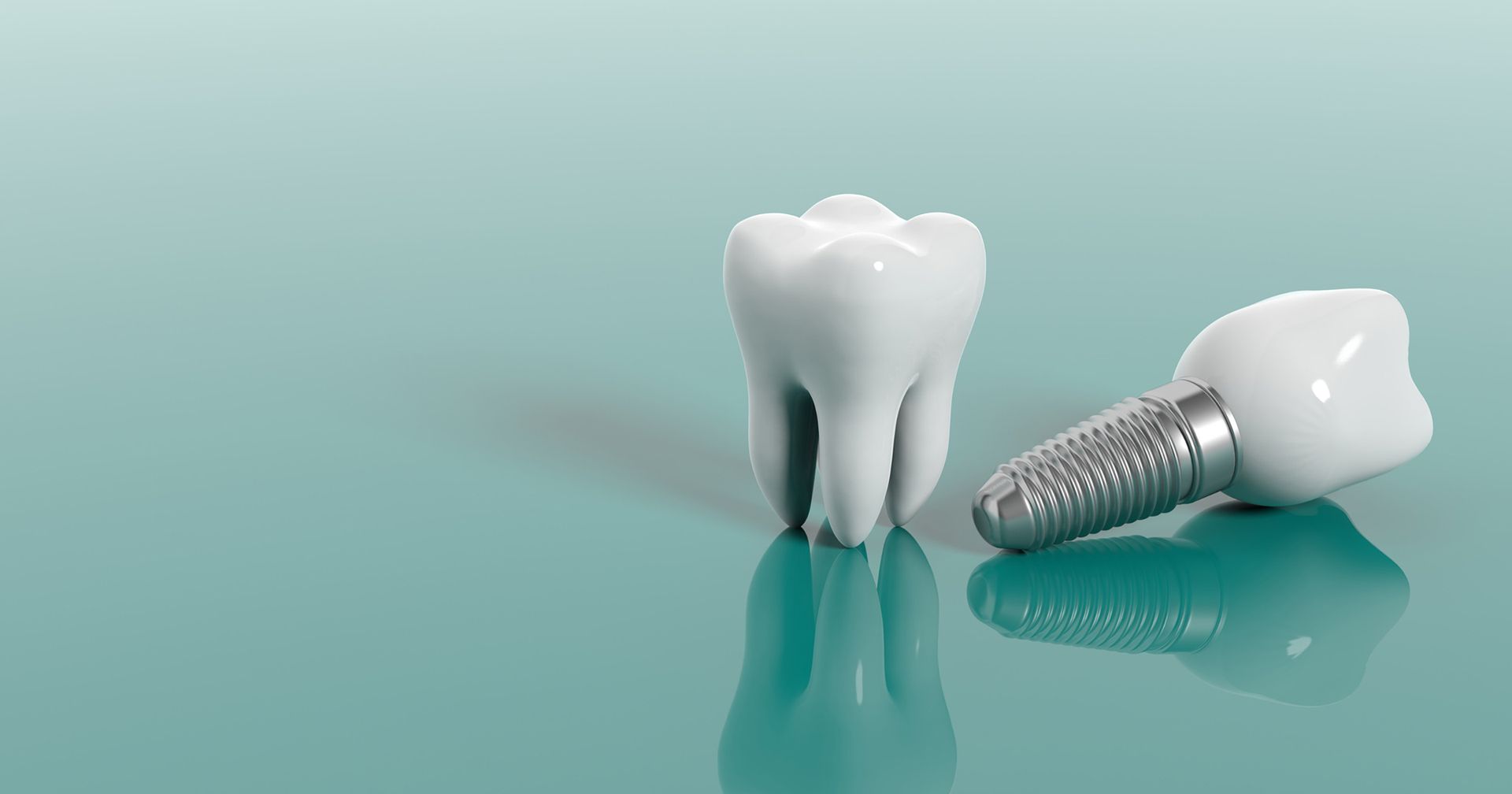Are dental implants better than dentures? Discover key differences and make an informed dental decision. Visit us for expert advice!
Longevity
Dental implants can last for many years when you care for them well. However, the lifespan of dental implants can be affected by:
- Poor oral hygiene
- Smoking or tobacco use
- Uncontrolled medical conditions
- Teeth grinding habits
- Gum disease
You can protect your implants by brushing and flossing daily, visiting your dentist regularly, and avoiding tobacco. Managing health conditions and using a night guard for grinding can also help extend their life.
Dentures usually need replacement every five to eight years as your jaw changes shape over time. Implants fuse with the bone, giving strong support that stays steady over time.
Dentures can wear out faster and may loosen as bone loss happens. When you compare the two, implants stand out for how long they last.
They are a good choice for those seeking a lasting solution. One of the main dental implant benefits is their strength and durability compared to regular dentures.
Appearance
High-quality dentures can look natural when shaped and colored to match your gums and facial features. They can restore a smile and improve confidence. Over time, however, bone loss may change your facial shape, causing dentures to look less natural without adjustments or replacements.
Implants, on the other hand, help preserve the jawbone and maintain a fuller, more youthful face. They blend so well with natural teeth that it is often hard to tell them apart.
In a dental solutions comparison, implants usually take the lead for appearance because they hold facial structure and prevent the sunken look caused by bone loss. For people who value a long-lasting,
natural-looking smile, implants are often the preferred choice.
Comfort
Many people find implants more comfortable because they feel and work like natural teeth anchored firmly in place. Dentures may cause:
- Gum irritation
- Movement when chewing
- Sore gum spots
- Speech difficulties
Implants remove the movement that can happen with dentures, giving you more confidence in social and private moments. Dentures may still be a good choice for people who cannot have surgery or want a non-surgical option. When choosing dental treatments, implants often provide greater comfort for those wanting a natural feel without daily removal or adhesive use.
Function and Stability
Implants give strong biting power that feels close to natural teeth, letting you eat different types of food with confidence. Dentures can sometimes move in the mouth, especially when chewing harder foods, which may lower comfort and confidence.
Implant-supported teeth also help with clear speech and avoid the clicking or lisping that can happen with dentures. Dentures still work well for softer foods and everyday needs, but their stability depends on how well they fit. For many people, implants provide better chewing strength and speech clarity, making them the more reliable and comfortable choice over time.
Cost
The average cost of a single dental implant ranges from $3,000 to $6,000. The cost can be influenced by factors such as:
- Number of teeth replaced
- Type of implant used
- Need for bone grafting
- A dentist's skill and experience
- Location of the clinic
The initial cost of dental dentures, on the other hand, is relatively low. However, over time, the expense of maintenance and replacement can quickly add up.
For long-term value, implants often prove to be the better choice. You can pay for implants through dental financing, payment plans, or insurance if available.
If you are unsure which missing teeth replacement option to consider in the dentures vs implants debate, Dental Specialists of Niles, P.C. can help. Our dental experts can explain how both dentures and implants work, helping you choose an option that fits your needs and budget.
Procedure Time
Getting implants involves several steps, beginning with the surgical placement of the implant post into the jawbone. After surgery, healing can take several months before the crown or bridge is attached.
Dentures, on the other hand, can be made and fitted much faster, sometimes within a few weeks. The quick turnaround makes dentures appealing for people who want immediate results.
However, implants, though slower to complete, often provide a stronger and longer-lasting solution. Dentures may be quicker at first, but usually need more adjustments over the years. When comparing options, the time commitment for implants can be worth it for people seeking a secure, stable, and lasting replacement.
Maintenance
Implants require the same daily care as natural teeth, including:
- Brushing twice a day
- Flossing between teeth
- Regular dental checkups
- Using non-abrasive toothpaste
- Rinsing with mouthwash
Dentures require a specific cleaning routine, including soaking overnight and avoiding cleaning agents that can harm them. They are also taken out at night to let the gums rest and recover.
Many people who want a simple oral care routine prefer implants because they fit naturally into daily habits. From an oral health options point of view, implants make cleaning easier and remove the need for special storage or soaking solutions.
Are Dental Implants Better Than Dentures for Long-Term Comfort?
The question, "Are dental implants better than dentures?" often comes up when people explore tooth replacement options. Implants provide strong biting power, natural speech, and a secure fit, whereas dentures can shift and require adjustments. Many people choose implants for lasting comfort, strength, and a natural feel.
At Dental Specialists of Niles, P.C., we combine skill with personal care to give lasting results. Our team includes Dr. Dorothy Anasinski, a board-certified periodontist with over two decades of experience.
She has successfully performed more than 5,000 dental implant treatments. Schedule a dental consultation today if you want a healthy, confident smile.















